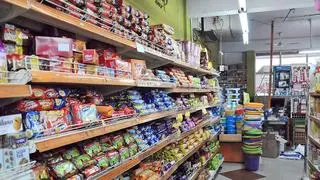After exiting a number of categories and brands, Parle Agro is back to focusing on its flagship brand – Frooti.
This summer, the ₹2,500-crore food and beverage company is powering Frooti with a new brand identity and wider focus to take on multinational brands such as Slice (PepsiCo) and Maaza (Coca Cola).
At present, Frooti is the market leader with an 85 per cent share in the tetra pack category, but lags behind the MNCs in the overall mango fruit drink segment with an 11 per cent share.
“MNCs have higher shares than us. But we are the market leader in the tetra pack segment.
“We have changed our brand identity and design with a new international agency, and expanded the target of the brand to include consumers across age groups,” said Nadia Chauhan, Joint Managing Director, Parle Agro.
London-based design house Pentagram and New York-based Sagmeister & Walsh have replaced Creativeland Asia, Frooti’s erstwhile agency in the recent past.
Completing 30 years in the fruit drink category, Frooti continues to be the largest selling brand in Parle Agro’s portfolio. While it has tasted success with beverage brands such as Frooti and Appy Fizz, the company exited the confectionary category. Even its nimbu pani (lemon juice) brand of LMN and fruit juices under the Saint brand could not survive the onslaught of MNCs.
Struggling categories In categories such as packaged drinking water and snacks, Parle is struggling to expand its portfolio of Bailey and Hippo, where it is competing with established MNC brands.
“Packaged water is a competitive category, but we are not advertising our Bailey packaged water brand,” said Chauhan.
Its ready-to-eat brand, Hippo, has seen limited brand extensions, but the company is taking it into regional flavours.
“We are gradually developing the food portfolio under Hippo with the help of a franchise network over the next 5-10 years,” added Chauhan.
Reaching out to one million outlets, Parle Agro has also been strengthening its distribution network.
Its last launch, Café Cuba, is riding on its existing beverage distribution, but has yet to register significant volumes.
“While we are trying to create the coffee-based carbonated category under Café Cuba, it takes time to build a brand,” said Chauhan.








Comments
Comments have to be in English, and in full sentences. They cannot be abusive or personal. Please abide by our community guidelines for posting your comments.
We have migrated to a new commenting platform. If you are already a registered user of TheHindu Businessline and logged in, you may continue to engage with our articles. If you do not have an account please register and login to post comments. Users can access their older comments by logging into their accounts on Vuukle.